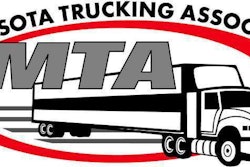While it continues to support the idea of electronic speed limiters on all heavy-duty trucks, one of this country’s largest trucking organizations now says it will not support the federal government’s current proposal mandating them. It also reiterated its request for more time to respond to the proposed rule.
On Thursday, Oct. 6, American Trucking Associations President and CEO Chris Spear called the proposed rule “flawed” and issued the following statement:
“Despite ATA’s decade-old, pro-safety policy on speed, the new joint rulemaking from the National Highway Traffic Safety Administration and Federal Motor Carrier Administration proposes a menu of three speed options for commercial trucks, not one. It provides insufficient data, and fails to make a recommendation regarding which of the three proposed speeds it believes is best and why.”
In a proposed rule publish about a month ago, the NHTSA and FMCSA included three possible speeds: 60, 65 and 68 mph, and asked the industry and the public for comments.
Spear’s comment continued:
“Most disconcerting is the fact that DOT’s new rulemaking does not address the differentials in speed that would exist between any of the three proposed national speed limits for trucks and the speed laws of multiple states – allowing passenger vehicles to travel at much higher speeds than commercial trucks. This lack of data and direction only elevates the safety risks to the motoring public.”
Since the proposed rule was first published, ATA and the Commercial Vehicle Safety Alliance has said more time is needed to study and make comments. Spear reiterated this request in his comments Thursday:
“Last month, ATA requested that DOT provide an additional 30 days to the public comment period, allowing more time to solicit member views on the rulemaking and assemble data that underscores the associated risks that this rulemaking would have on safety. ATA will then prepare its formal comments, fully illustrating the flaws of this proposed rulemaking, which we will not support as currently drafted.”
The public has until Nov. 7 to comment on the proposed speed limiter rule. Comments made be made online.











